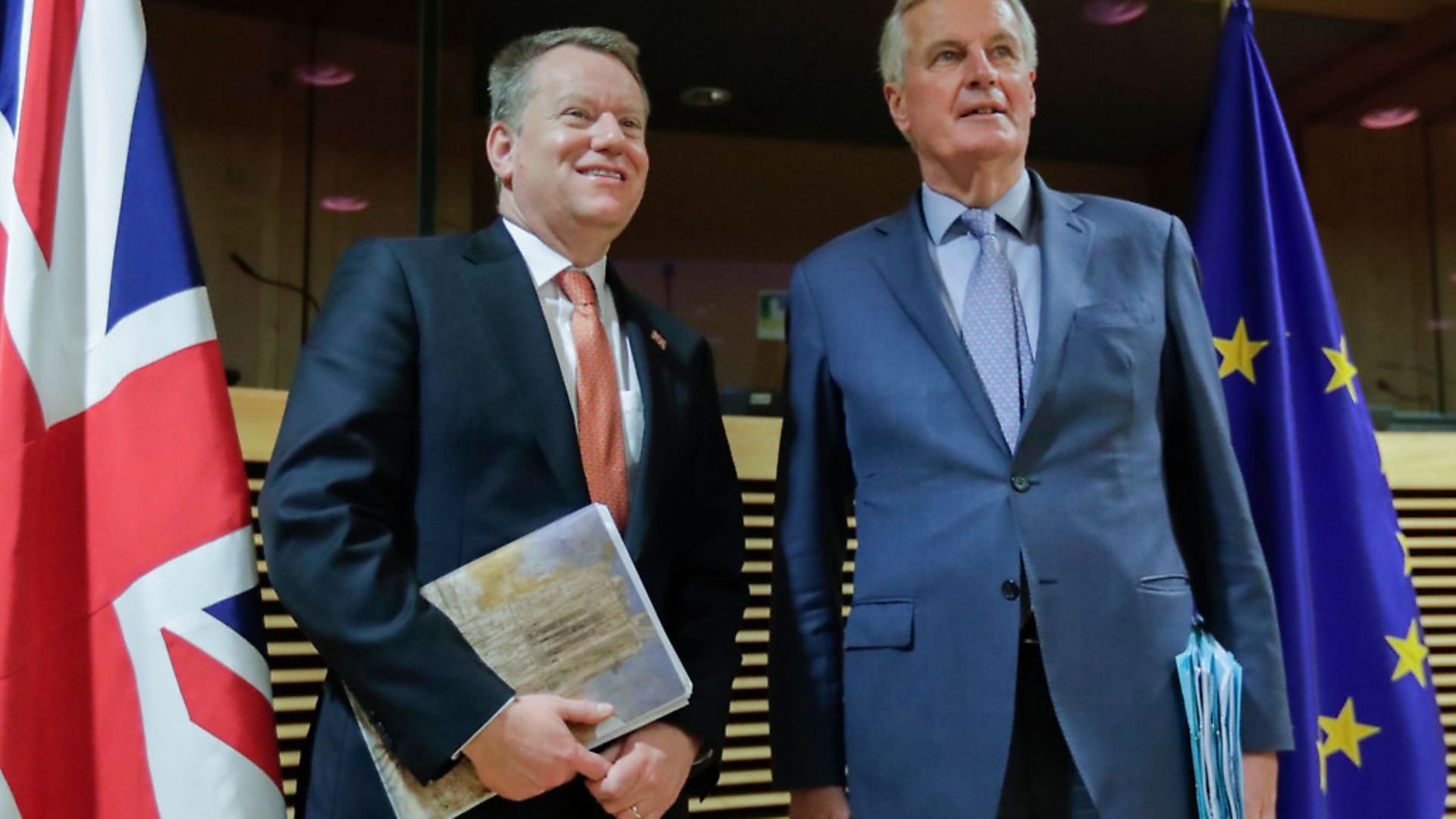
The European Commission’s chief negotiator Michel Barnier has warned that the UK government cannot have ‘the best of both worlds’ after Brexit.
Speaking at the European Commission press conference, after the UK government admitted there had been little progress in talks, he said: ‘In parallel to these negotiations, both the UK and the EU have a legal commitment to implement the Withdrawal Agreement.
‘Here, citizens’ rights are the priority for both sides and since the very beginning the UK tells us it has some concerns about the treatment of British nationals in the EU.
‘We yesterday received a letter from Michael Gove. I want to tell you that the commission is very, very attentive to this issue and we have just published guidelines to support all 27 member states to live up to the commitments of the Withdrawal Agreement.
‘But at the same time, we will also be watching closely to make sure that EU citizens residing in the UK do not face unfair treatment or any kind of discrimination and the European Parliament is particularly attentive to this.’
Have your say
Send your letters for publication to The New European by emailing letters@theneweuropean.co.uk and pick up an edition each Thursday for more comment and analysis. Find your nearest stockist here or subscribe to a print or digital edition for just £13. You can also join our readers' Facebook group to keep the discussion and debate going with thousands of fellow pro-Europeans.
A senior UK official close to the negotiations said the Brexit negotiations had been ‘a little bit tetchy at times’ and ‘disruptive’, but had ‘gone well in terms of process’.
‘The fundamentals remain as they have been: the problem continues to be that the EU thinks that a kind of halfway house between what we’re willing to see on the so-called level-playing field and what they’re willing to see, and what we’re willing to live with on fisheries and what they’re willing to see.
‘As we’ve tried to make clear from the start, there isn’t a halfway house – we can’t split the difference between areas where we control our own laws and waters, and those that we don’t.’
Asked if there would be a deal, they said: ‘I’m optimistic as we all are actually… it’s easy to see how you could do a pretty standard and major free trade agreement quite quickly – there’s a good level of understanding – and I think it’s in both our interests obviously to get to that.
‘So I’m optimistic that in the end that sort of logic can prevail but nobody can be certain of this.’
They added: ‘We’ve always made clear that if an agreement can’t be reached then trading on what we call Australia terms is perfectly doable and satisfactory.’
Naomi Smith, from the pro-EU campaigning group Best for Britain, said: ‘At a time of such economic peril, most people in the UK and across the continent will be looking on at the continued squabbling between officials with horror.
‘We only have seven months left to strike a deal and implement its terms, meaning there’s a big risk we face a no-deal Brexit at the turn of the year.
‘Businesses in the UK are struggling to stay afloat and pay their employees right now, so they don’t have the luxury of being able to prepare for such chaos.
‘Under these circumstances policy-makers on both sides should give serious thought to extending the transition period. By buying British industry a bit more time to prepare for a new relationship with Europe, the UK Government can only strengthen its hand in these negotiations.’








